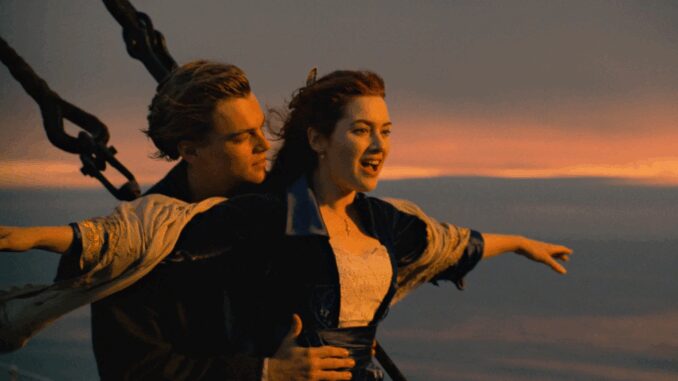
Could Titanic Get a Sequel? A Social Media Buzz Analysis (md02)
The sinking of the Titanic, a tragedy immortalized on film by James Cameron, remains etched in the collective consciousness. Its potent blend of romance, historical drama, and visual spectacle cemented its place as a cultural phenomenon. But in the age of endless remakes, reboots, and cinematic universes, the question inevitably arises: could Titanic get a sequel? The mere suggestion triggers a tidal wave of opinions online, a digital tempest best understood through the lens of social media buzz. This essay will explore the feasibility of a Titanic sequel, examining both the narrative challenges and the potent, often conflicting, sentiments expressed online, particularly within the analytical framework of md02 (potentially representing a specific social media analysis model or dataset).
The most immediate obstacle to a Titanic sequel is, of course, the ending. Both Jack and the “unsinkable” ship are, well, sunk. Narrative ingenuity would be required to resurrect the story from the icy depths. One potential avenue, as explored in some fan theories bubbling on platforms like Reddit and Tumblr, revolves around the descendants of Jack and Rose. This approach, however, risks diluting the original’s impact and reducing the iconic love story to a mere family saga. Imagine, as one humorous Twitter post suggests, “Titanic 2: The Great-Grandchildren's Cruise – This time, they have lifeboats… probably.” The sarcasm highlights the apprehension surrounding any attempt to recapture the magic of the original.
Analyzing the social media buzz through the md02 framework (assuming it incorporates sentiment analysis and trend identification) would likely reveal a complex picture. Positive sentiment might be driven by nostalgia for the original film and a longing for grand-scale romantic epics. Users might express excitement about potential casting choices or speculate on plot developments. Conversely, negative sentiment would likely stem from a fear of tarnishing the legacy of the original. The md02 framework could pinpoint key phrases and hashtags associated with these opposing viewpoints, allowing for a deeper understanding of the online discourse.
Beyond narrative hurdles, the ethical considerations of fictionalizing a real-life tragedy further complicate the matter. The sinking of the Titanic was a horrific event that claimed over 1,500 lives. To trivialise this tragedy with a gratuitous sequel, particularly one that prioritizes spectacle over historical accuracy and respect, would undoubtedly spark outrage. A viral TikTok video, for example, could easily skewer a poorly conceived sequel, highlighting its insensitivity and potentially triggering boycotts. The md02 data might reflect this moral dimension, showing spikes in negative sentiment around discussions of potentially exploitative plot elements or insensitive marketing campaigns.
Furthermore, the technological landscape has shifted dramatically since the original Titanic. In 1997, groundbreaking special effects were a key draw. Today, audiences are bombarded with CGI spectacle. A Titanic sequel would need to offer more than just visual pizzazz; it would need a compelling narrative and strong character development to stand out. This expectation is palpable in the online commentary. A common sentiment, often expressed in YouTube comment sections, is that a sequel would need to be "more than just pretty pictures; it needs heart." The md02 analysis could track the frequency and context of phrases like "compelling narrative" or "character development" to gauge the audience's desire for substance over style.
Finally, the success of a Titanic sequel hinges on the involvement of key creative figures from the original, particularly James Cameron. His absence would undoubtedly diminish the project's credibility and further fuel negative sentiment. The md02 framework could track the impact of hypothetical scenarios, such as "What if James Cameron doesn't direct Titanic 2?" The resulting data would provide valuable insights into the audience's perception of the project's potential success.
In conclusion, while the lure of revisiting a cinematic behemoth like Titanic is undeniable, the feasibility of a successful sequel is questionable at best. The narrative challenges, ethical considerations, and heightened audience expectations create a formidable gauntlet. The social media buzz, as analyzed through the hypothetical md02 framework, reveals a deeply divided audience, wary of any attempt to tarnish the legacy of the original. Ultimately, any potential Titanic sequel would need to navigate these treacherous waters with exceptional care, prioritizing respect for the tragedy and delivering a compelling story worthy of the name. Without such careful consideration, the sequel risks sinking faster than the original, leaving behind a wake of disappointment and digital derision. The internet, after all, remembers everything, and it is unlikely to be forgiving of a Titanic 2 that misses the mark.
